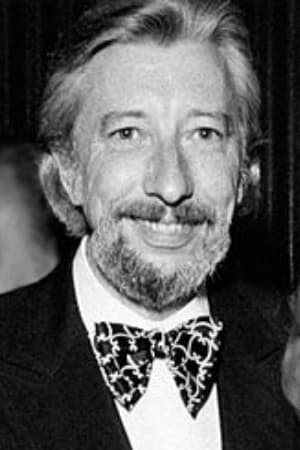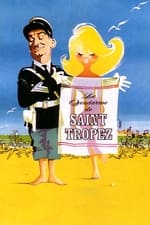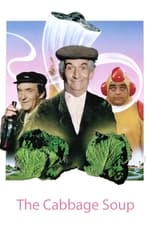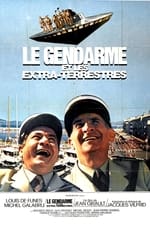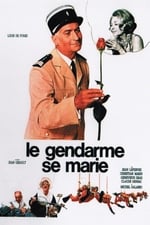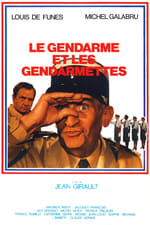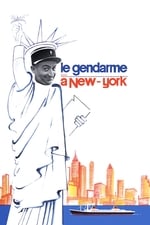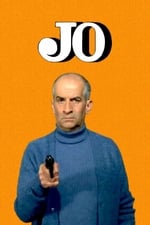Personal Info
Known For Sound
Known Credits 17
Gender Male
Birthday November 20, 1929
Day of Death June 27, 2008 (78 years old)
Place of Birth Calais, Pas-de-Calais, France
Also Known As
- Raymond Lefèvre
Content Score
100
Yes! Looking good!
Login to report an issue
Biography
Raymond Lefèvre (20 November 1929 – 27 June 2008) was a French easy listening orchestra leader, arranger and composer.
Born on 20 November 1929 in Calais, France, Raymond Lefèvre is best known for his interpretation of the 1968 theme "Soul Coaxing (Ame Caline)" (composed by Michel Polnareff), which became an international hit. He also wrote soundtracks for movies with Louis de Funès such as La Soupe Aux Choux (1981) or the series Le Gendarme de Saint Tropez. During the late 1950s and early 1960s, he accompanied Dalida on most of her recordings (Bambino, Por Favor, Tu peux tout faire de moi, Quand on n'a que l'amour), amongst many others. He started his musical career in 1956 on the Barclay Records label. His recordings were released in the United States on the Kapp and Four Corners record labels until 1969.
He was accepted at the Paris Conservatory when 17 years old. During the early 1950s he played the piano for the Franck Pourcel orchestra. In 1953 he played the piano at the Hilton Hotel in Los Angeles. He started his musical career in 1956 on the Barclay label and recorded his debut album that year.
He worked on the French television programmes Musicorama (1950s) and Palmarés des Chansons (1965, 1966, 1967) accompanying such famous artists as Dalida, Claude François, Richard Anthony, with his own orchestra.
His recording of "The Day the Rains Came" was a best seller in the United States in 1958. The song "Ame câline" (Soul Coaxing) became an international hit in 1968 and "La La La (He Gives Me Love)" - an instrumental adaptation of 1968's Eurovision Song Contest's winning song by Spanish singer Massiel - was a minor hit in 1968 in Canada and the United States. In 1969, his recording of "La Reine de Saba" (Queen of Sheba) became a big hit in Japan. From 1972 until the early 2000s, he undertook several successful tours of Japan.
He worked on the soundtracks of many Louis de Funès movies.
Lefèvre conducted entries four times at the Eurovision Song Contest, three times for Monaco (in 1961, 1962, and 1963), and once for Luxembourg in 1970.
Raymond Lefèvre died in Seine-Port, France on 27 June 2008 at the age of 78.
Source: Article "Raymond Lefèvre" from Wikipedia in English, licensed under CC-BY-SA 3.0.
Raymond Lefèvre (20 November 1929 – 27 June 2008) was a French easy listening orchestra leader, arranger and composer.
Born on 20 November 1929 in Calais, France, Raymond Lefèvre is best known for his interpretation of the 1968 theme "Soul Coaxing (Ame Caline)" (composed by Michel Polnareff), which became an international hit. He also wrote soundtracks for movies with Louis de Funès such as La Soupe Aux Choux (1981) or the series Le Gendarme de Saint Tropez. During the late 1950s and early 1960s, he accompanied Dalida on most of her recordings (Bambino, Por Favor, Tu peux tout faire de moi, Quand on n'a que l'amour), amongst many others. He started his musical career in 1956 on the Barclay Records label. His recordings were released in the United States on the Kapp and Four Corners record labels until 1969.
He was accepted at the Paris Conservatory when 17 years old. During the early 1950s he played the piano for the Franck Pourcel orchestra. In 1953 he played the piano at the Hilton Hotel in Los Angeles. He started his musical career in 1956 on the Barclay label and recorded his debut album that year.
He worked on the French television programmes Musicorama (1950s) and Palmarés des Chansons (1965, 1966, 1967) accompanying such famous artists as Dalida, Claude François, Richard Anthony, with his own orchestra.
His recording of "The Day the Rains Came" was a best seller in the United States in 1958. The song "Ame câline" (Soul Coaxing) became an international hit in 1968 and "La La La (He Gives Me Love)" - an instrumental adaptation of 1968's Eurovision Song Contest's winning song by Spanish singer Massiel - was a minor hit in 1968 in Canada and the United States. In 1969, his recording of "La Reine de Saba" (Queen of Sheba) became a big hit in Japan. From 1972 until the early 2000s, he undertook several successful tours of Japan.
He worked on the soundtracks of many Louis de Funès movies.
Lefèvre conducted entries four times at the Eurovision Song Contest, three times for Monaco (in 1961, 1962, and 1963), and once for Luxembourg in 1970.
Raymond Lefèvre died in Seine-Port, France on 27 June 2008 at the age of 78.
Source: Article "Raymond Lefèvre" from Wikipedia in English, licensed under CC-BY-SA 3.0.
Sound
|
||||||
|
||||||
|
||||||
|
||||||
|
||||||
|
||||||
|
||||||
|
||||||
|
||||||
|
||||||
|
Acting
|
||||||
|
||||||
|
